In the footsteps of Tolstoy in Switzerland
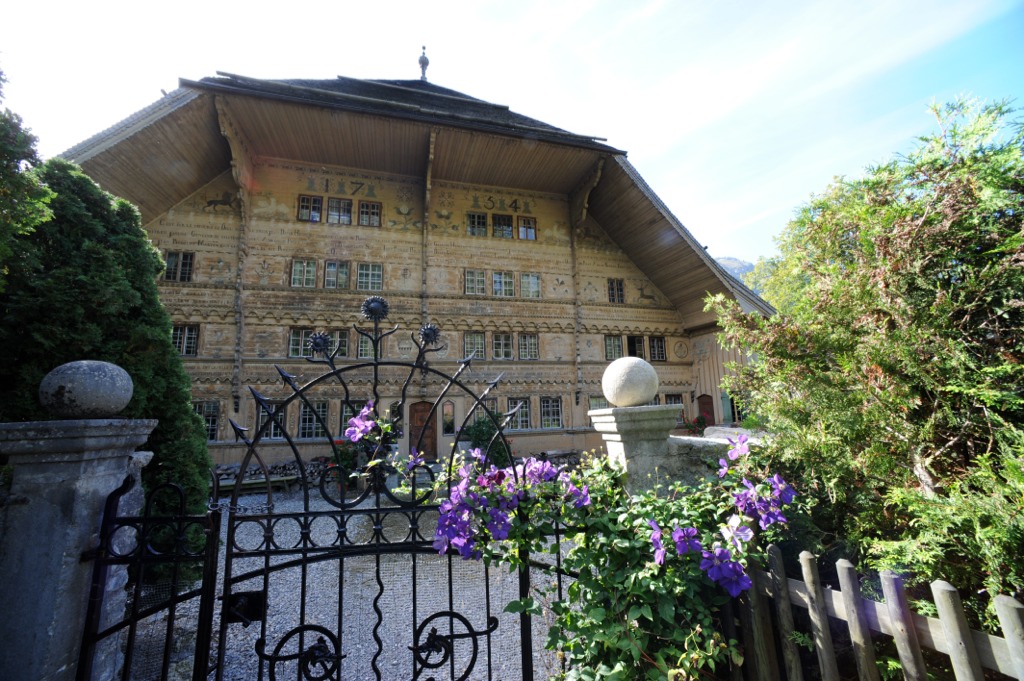
A century after the death of Leo Tolstoy, swissinfo.ch follows the footsteps of the Russian writer during his journey through the Swiss Alps in the mid 19th century.
In his diary, Tolstoy recorded impressions from his walk that took him from Montreux on the Lake Geneva shore to Meiringen in the Bernese Oberland in the spring of 1857.
Montreux, May 27. Tolstoy’s diary reads: “At four in the afternoon after drinking coffee, I went to find my travelling companion… From Montreux we started to climb up some small steps in the middle of the vineyards, straight towards the mountain.”
The writer’s companion on the trip was an 11-year-old Russian boy, Sasha, who he got to know only a few days earlier.
The destination on their first day was the village of Les Avants, at the foot of the Jaman pass at an elevation of about 1,000 metres above sea level.
The two arrived late in the afternoon and found a small inn. “A Swiss woman with a goitre [throat swelling] took our bags to two small clean rooms,” Tolstoy wrote. “Below, small boys were shooting at a target with crossbows, while an Italian tinker was mending saucepans in front of a cottage. Some sturdy Swiss, their dirty arms bare to the shoulder, were piling up pungent cheeses.”
Les Avants is now a sleepy village and it’s hard to imagine that during the Belle Epoque the place was one of the most popular winter resorts in the Swiss Alps. But there is still a narrow gauge railway line passing by here that connects Montreux to Zweisimmen. The first stage, completed in 1901, ended at Les Avants.
Today you could do Tolstoy’s journey by public transport: by train from Montreux to Zweisimmen, then boat or train from Spiez to Interlaken, again by train to Grindelwald and – from May to October – with the postal stagecoach to Meiringen which went to Grindelwald over the Grosse Scheidegg pass.
The train goes through a 2.5km-long tunnel under the Jaman pass. To follow in Tolstoy’s steps, it is necessary to go up a steep path that from Les Avants climbs through forests of conifers and broad-leaved trees. Five hundred metres higher, Lake Geneva appears at your feet.
Not impressed
The writer was not particularly impressed by the view, saying: “The sight of the frozen panorame of Mount Jaman left me cold; it didn’t even occur to me to stop.”
But the walk up did give him the pretext to describe his relationship with the countryside: “I love nature when it is all around me, and stretches away into the distance, to infinity, and I feel myself in the midst of it. I like it when I am surrounded by warm air, and that same air continues into the infinite distance.”
Beyond the pass, after spending an hour walking down, you can take the train to Les Cases or, after another 30 minutes, to Les Alières. “To right and left [you hear] the unbroken sound of little bells, which suit so well the slanting rays of the morning sun, the dew-covered grass, the scent of the flowers, of the dew and of the cattle,” Tolstoy said after reaching the small villages in the region known as the Pays-d’Enhaut.
We take the train to Rossinière. Tolstoy spoke about Rossinière indirectly, through the voice of a woman he met along the way: “I come from Rossinière, the village on the mountain; there’s a large guesthouse there too, where lots of foreigners come.” This inn, the Grand Châlet, would become the home of Polish artist Balthus a century later.
Ragged children
Crossing the region, Tolstoy often paused to describe people and things. At Montbovon in canton Fribourg, he wrote: “The children are dirty and ragged, a large cross at the fork in the village, the inscriptions on the houses, on a fountain a hideously painted statue of the Madonna, a bloated old man with a little boy covered in pock marks who asked me for alms.”
The train meanwhile has arrived at the station in Château-d’Oex. We look out of the window hoping to see soldiers. The writer, who had fought in the Crimean War, had no love for troops and their ways.
After meeting a few drunken soldiers at Château-d’Oex he became furious: “Nowhere does the corrupting influence of the uniform make itself felt as strongly as in Switzerland. In fact, the whole military set-up is designed to change man, a good and rational being, into a wild and stupid animal.”
At this point in the walk, Tolstoy made fewer notes in his diary. The rest of the trip is accompanied by occasional remarks. There are lapidary phrases, unflinchingly depicting the places he visited, his thoughts and moods.
Lure of women
Tolstoy wrote at Interlaken: “I don’t feel well. I woke up at seven. I walked to Bönigen. Beautiful, the women. Beggars. Rain. I worked a bit on The Cossacks… I find the chambermaid exciting.” The personality of the writer comes out in just a few lines: he continues to work on his texts, giving attention to the most insignificant things and the lure of women.
In his novel, The Cossacks, the writer revisits, in the form of letters, the experience of war in Chechnya. During his pilgrimage across the Alps, when he was not being distracted by the “beautiful woman with the red cheeks” – which happened quite often – his thoughts were elsewhere: in the mountains of the Caucasus.
At these moments he was somewhat annoyed with the Alps and their tourist attractions: “Switzerland is shopkeepers and charging you to see the sights. A contrast with the Russian peasants,” he wrote a little before the end of his trip.
Having arrived in Meiringen, Tolstoy added in his diary: “Beautiful women everywhere, with their white breasts. My feet hurt terribly.”
Leo Tolstoy visited Switzerland in 1857 after a stay in France.
In Paris he had fled in horror after seeing a guillotine. The trip to Switzerland was a chance to reflect on that experience, which caused him to lose his faith in human progress.
Tolstoy’s Swiss trip was also an opportunity for him to absorb himself in the literature of an author who had really inspired him: Jean-Jacques Rousseau.
Before walking from Montreux to Meiringen, Tolstoy reread La Nouvelle Héloïse, Rousseau’s novel set around Montreux and Vevey.
The Russian writer’s trip to Switzerland was quite productive: in addition to working on The Cossacks, Tolstoy also wrote The Memoirs of Prince Nekhlyudov: Lucerne.
(Translated from Italian by Dale Bechtel)

In compliance with the JTI standards
More: SWI swissinfo.ch certified by the Journalism Trust Initiative
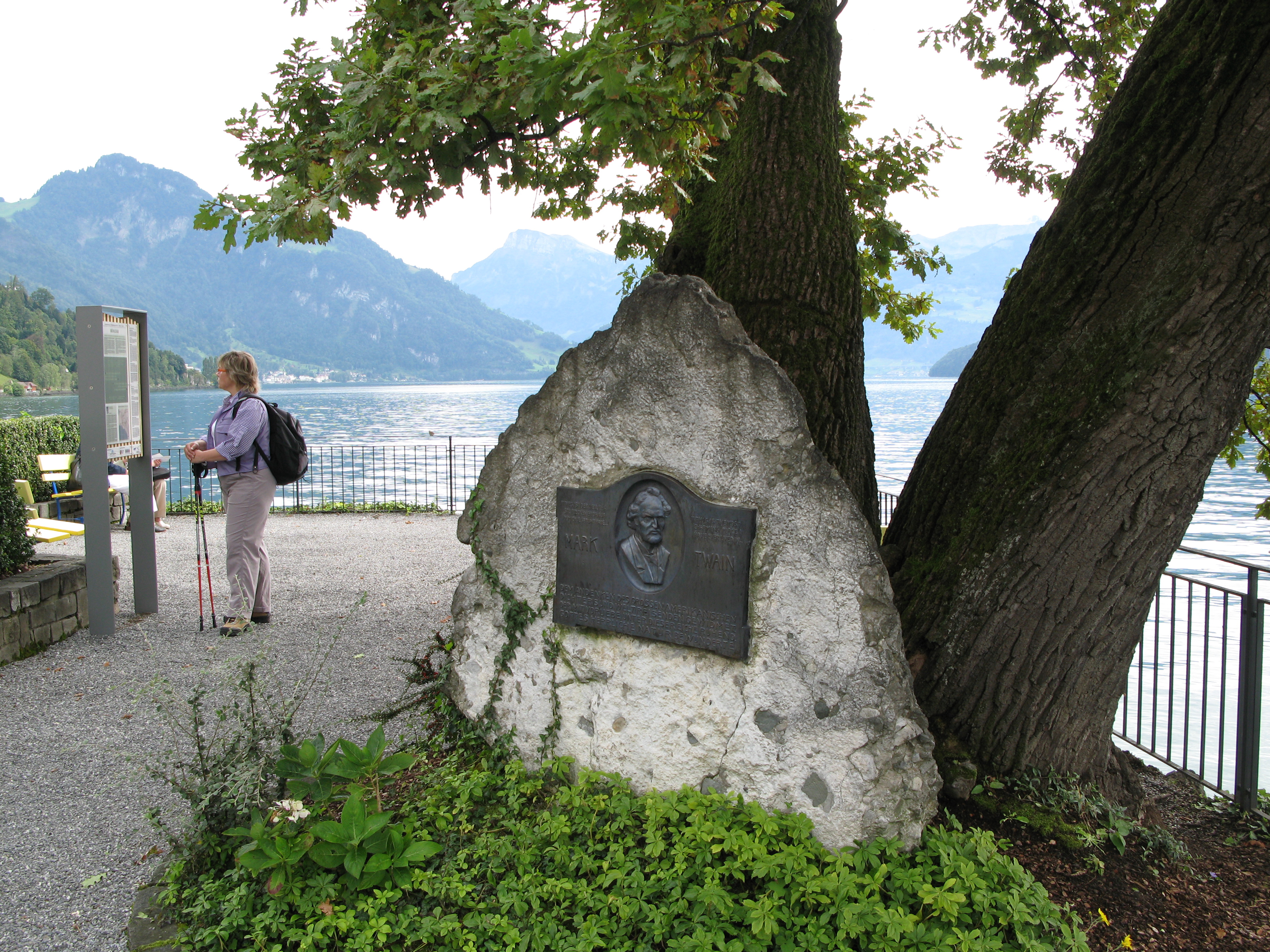

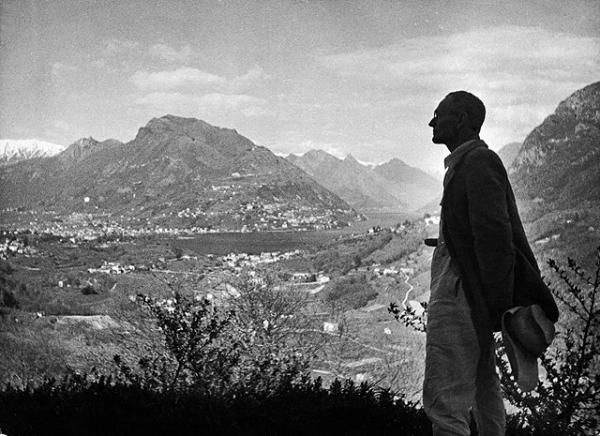
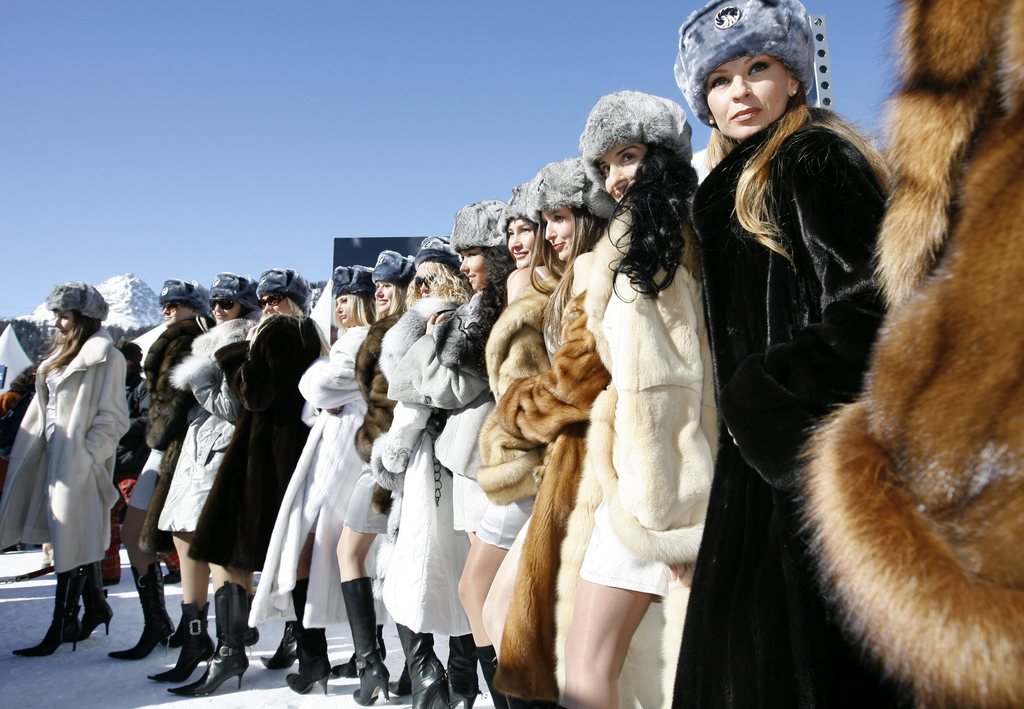
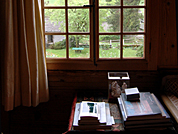
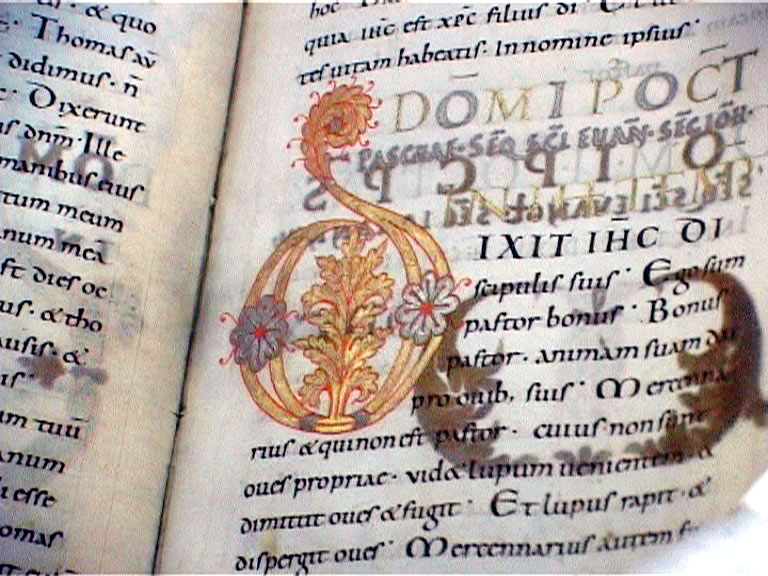
You can find an overview of ongoing debates with our journalists here. Please join us!
If you want to start a conversation about a topic raised in this article or want to report factual errors, email us at english@swissinfo.ch.